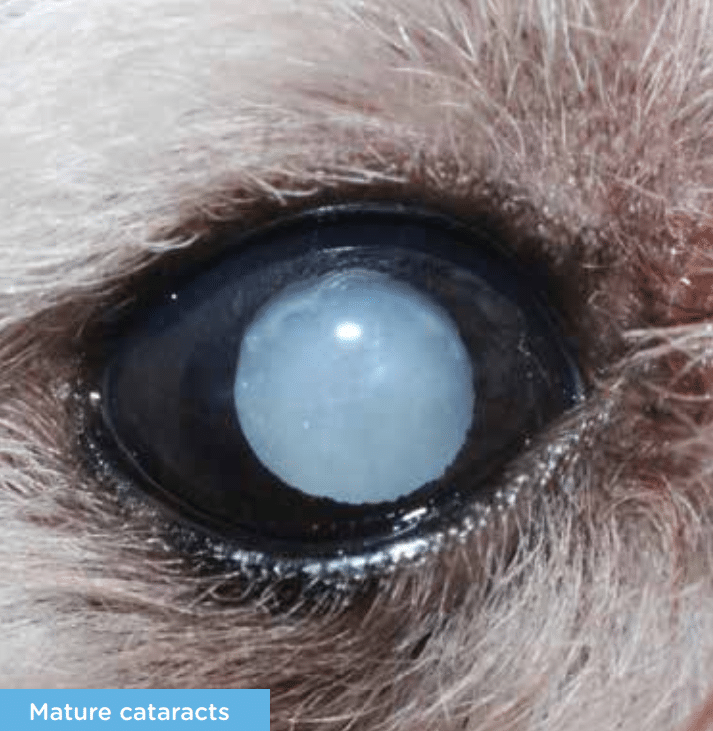Cataract – opacity of the lens
What is a cataract?
A cataract is an opacity of the lens, which prevents light from entering the eye, often resulting in blindness.
Why does it occur?
There are several reasons for the development of cataracts, one of the most common being diabetes, followed by hereditary (genetic) cataracts, and secondary cataracts to trauma, intraocular inflammation, other primary diseases of the retina, etc.
Can both eyes be affected?
Yes, more often than not we see cataracts in both eyes, but not necessarily equally progressed. However, cataracts affecting only one eye are also possible.
Are any breeds predisposed?
Whereas any breed can be affected, we can commonly see cataracts in Bichons Frises, Spaniels, Boston Terriers, Labrador Retrievers, French Bulldogs, etc.
What treatment options do I have?
Unfortunately, the only treatment for cataracts, which are progressive and/or blinding, is cataract surgery. Early stages of non-progressive cataracts may only require close monitoring for progression.


What do I need to expect if I agree to have cataract surgery done?
Cataract surgery is a highly complex type of surgery, which requires adequate pre-operative workup, good pet and owner compliance and is generally considered a life-long commitment, as long term treatment is usually required to some degree. At our practice, we hospitalize pets undergoing cataract surgery, as the first few days after the surgery require close monitoring and intensive medical treatment. After discharge from hospital, we expect to see our patients back 5-6 times during the first 3 months, after that on a biannual basis life-long.
What are the chances of success?
Cataract surgery is expected to be successful in 80-90% of cases. Unfortunately, there is never any guarantee of success for each individual case and despite best efforts, some dogs undergoing cataract surgery may still end up blind or requiring surgical removal of the eye.
What happens if I do nothing?
If left untreated, cataracts cause intraocular inflammation, which usually results in irreversible blindness and loss of the eye.
